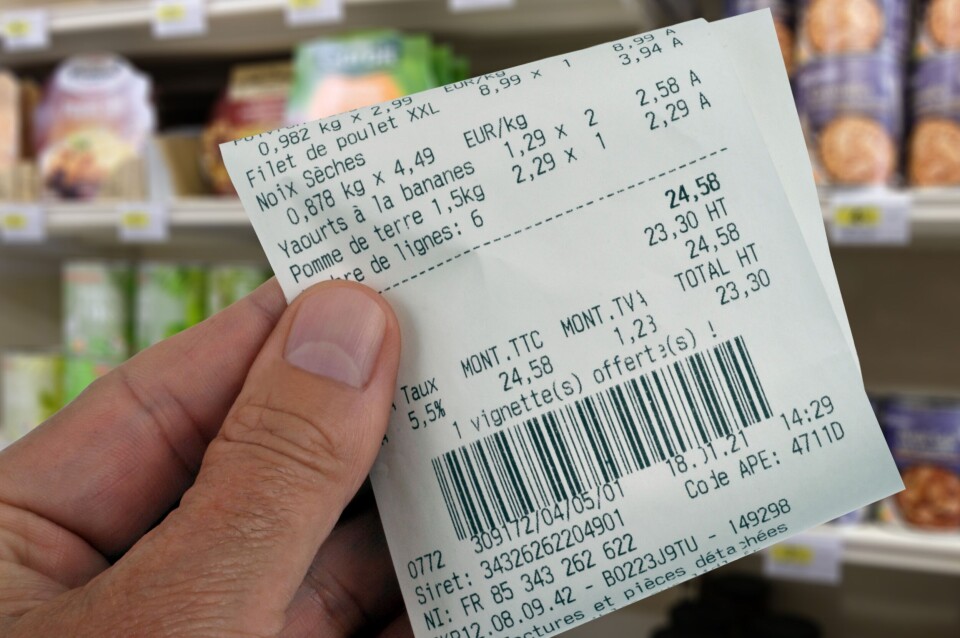-
Pistes closed, confinement orders: Alpine resorts deal with avalanche risk
Increased snowfall this weekend may cause further closures as busy school holiday season continues
-
Former French Interior Minister announces 2027 presidential candidacy
Bruno Retailleau recently asked prefectures to be tough on immigration
-
Ryanair axes Dublin-Rodez route but London connection retained
“We are disappointed but had no say in decision” say airport authorities
Poultry, oil, cereals: Which items are set to fall in price in France?
French economy minister Bruno Le Maire said the cost of certain products would fall from July

Hundreds of everyday supermarket items are set to drop in price in July, including oils, poultry, and cereals.
That is according to France’s economy minister Bruno Le Maire.
He said major food manufacturers had committed to lowering the prices of hundreds of products that have been hit by high inflation in recent months.
“I am telling the public that from July onwards, prices will fall on a certain number of items and products,” Mr Le Maire told BFM TV/RMC.
”This is what manufacturers have committed to,” he added.
Which items did the minister mention?
Not all food products will see a drop in price, with the reductions primarily linked to those where the cost of production had fallen, Mr Le Maire said.
The minister explained: “Poultry prices have to come down because production costs have fallen. For pork and beef, it's different, because production costs are still high.”
Similarly, he said that there will be no price cuts for milk, "because producers would suffer".
He said that he wanted prices to start coming down from July onwards, and not take months for these production decreases to be seen on shelves.
He said that prices could naturally begin to come down over the next few months for the same reason, however, and that decreases could continue into autumn.
New trade negotiations
Mr Le Maire also confirmed to BFM that 75 major international food manufacturers, including Coca-Cola, L'Oréal, Mondelez, and Nestlé, have also said they are happy to reopen trade negotiations with supermarkets on contracts that concluded in 2023, in a bid to lower costs.
He said that while he does not “have a ruler in [my] hands to make prices go up or down…[I do] have the power to ask distributors and manufacturers to get together, reach agreements and bring prices down.
“That's what we achieved yesterday, and now I expect to see it on the shelves.”
Inflation and food prices
It comes after food prices have risen significantly in France over the past year, even higher than inflation overall.
Year-on-year, the overall rise in consumer prices was 5.1% as of May, but food prices still soared by 14.1%.
Read more: Which supermarket foods have been hardest hit by inflation in France?
Read more: Are France’s measures to tackle food price rises working?
Penalties for ‘those who do not play the game’
The minister continued that the government would be monitoring the price decreases, and “penalise those who do not play the game".
He recently threatened to publish a list of manufacturer names who refused to take part.
He said: "The possibility remains on the table. If one of these 75 food manufacturers, one of these large multinationals, has margins that continue to rise…that means that it is not taking part in the fight against inflation. So their name will be revealed to the public.”
He also warned that companies who take “excessive margins” will be subject to a proportional tax, because “the margins of agri-food companies have [now]...more than made up the losses they incurred in the past two years”.
He said that companies have a duty to “give back” part of the margins they make to the consumer, and that if the companies did not comply, the government would “get it back through taxation”.
Related articles
Has France’s anti-inflation drive cut supermarket food prices?
























